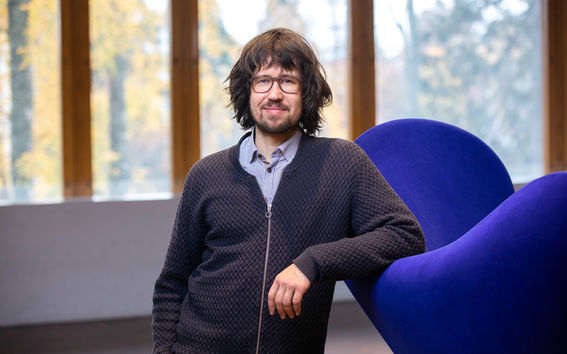Matti Kummu is helping feed the world without overshooting planetary boundaries
In this series, we interview Aaltonians to find out what’s behind our community’s impact. We ask these Aaltonians what makes them tick and which number they think best captures Aalto’s impact. Associate professor Matti Kummu is motivated about the potential impact his team’s work could have on a global scale.
"While doing my PhD research, I lived in Southeast Asia for four years, where we investigated the effects of human activity on the water ecosystem of the Mekong River. Afterwards, I became interested in studying the water problems at the global scale and particularly water scarcity issues, and I quickly realized that food production is at its core. Food production accounts for almost 90 percent of overall water consumption, so how and what kind of food is produced largely determine how much water is needed and where.
All of my current research projects are related in one way or another to the question of a sustainable food supply, or how we can produce enough food within planetary boundaries. These boundaries are related to things like biodiversity, freshwater use and land use and those aim to define the safe conditions in where humans can live. Six of the nine planetary boundaries have already been crossed, and food production is the main driver in many of these transgressions. At the same time, climate change and population growth put more pressure on the environment. If we want to change course, making food production – and consumption – more sustainable is the single most important thing we could do.
In our research, we combine various global datasets and analyse them in new ways to better understand both the challenges and opportunities we have in future. We are also developing our own broader global food system model. It allows us to find out how different sectors are interconnected and how a change in one area or sector affects other areas. For example, we’ve studied the effect of food waste and dietary changes on food availability, as well as the effects of extreme weather events and agricultural production inputs, such as fertilizer availability, on food production.
Recently, we have explored how the use of machine learning and artificial intelligence algorithms would help us to conduct even more meaningful research. Globally, most research groups work on either food production or consumption, but our goal is to analyse the entire food system. For example, one of our studies shows that a pure vegan diet consumes more resources than a diet that includes a little bit of meat. This is because farming produces a lot of by-products that are not fit for human consumption but can be used as animal feed.
Interest in our research has grown a lot in the past years. Food security and sustainable food production are now major topics around the world and are at the heart of global geopolitics. I hope that with our work we can be part of finding the sustainable solutions to the ongoing and future global food crisis. I have been delighted to see that things are starting to change – and that makes me even more motivated about our research.
I chose one billion as the number describing the impact of our work. We recently showed that food for one billion more people would become available if agricultural side streams were upcycled more efficiently to feed livestock. A similar increase in food availability could also be achieved by halving
food waste in different parts of the food chain. Current food production could therefore supply enough food for a population larger by one-quarter without significantly changing diets or using more natural resources for producing the food."
Matti Kummu, professor of global food and water issues, Aalto University School of Engineering

Show other posts from this blog

Peter from Vensum: "It’s crucial to have a clear vision of the impact you aim to make. "
Vensum’s story was ignited by the urgent need to address some of the main problems our energy system will face in the near future.
Upright: Enhancing the understanding of the true impact that companies have on the world
Especially the largest companies in the world have come to realise that measuring net impact is now an issue of “do or die.”
Kirsi Niinimäki celebrates the textile revolution and chooses 10 as her number
I’m very excited about the speed and volume of the progress that’s happening. It seems that everyone wants to switch to the new model.